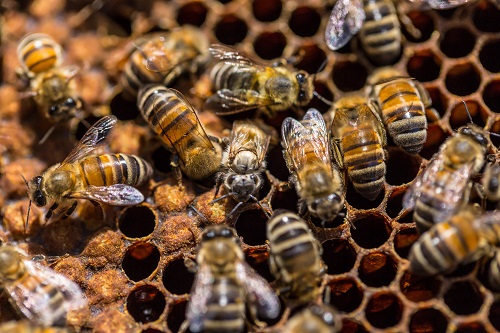High-Tech Honey Bee Hive Protects Against Varroa Mites
January 25, 2019
As is becoming common knowledge, honey bees are essential for human civilization to be possible. Without them, most of the crops we grow wouldn’t have natural access to necessary pollination, and it would be much harder to feed the world’s expanding population. However, honey bees are having serious problems, from pesticides to habitat loss to other factors as simple as stress, but one chief problem they have involves the parasitic varroa mite, which is to a bee what a bed bug is to a human—only worse.
Compared with bed bugs, the varroa mite is only slightly smaller than a honey bee, which gives the parasites an advantage over bees by allowing them to attack individual bees half a dozen at a time, sucking their fat cells and giving them RNA viruses that lead to genetic deformities. To make things worse, honey bees have no real way of defending themselves against varroa mites, so these invaders can typically reproduce without limit until beekeepers can intervene.
However, once they’ve attached, varroa mites are almost impossible to exterminate without also killing the hives, placing any infected colonies in quarantine, and suspending seasonal pollination. Pesticides might help, but this endeavor is both tricky and costly to administer, and mites can even become resistant. Fortunately, hope is not completely lost—a new device being displayed at CES in Las Vegas this year just might give beekeepers what they need to properly fight varroa mites. This device, the Cocoon, is a high-tech hive that’s been specifically designed for thwarting varroa mites, which it does by using what’s perhaps the mite’s only real weakness: heat.
Though honey bees can handle fairly high temperatures (possibly an evolutionary requirement for surviving the world’s hottest areas), varroa mites die when subjected to temperatures over 108 degrees Fahrenheit for several hours. To take advantage of this weakness, the Cocoon uses solar panels for a heating system, which gradually drives interior temperatures up to 108 degrees and eliminates the mite invaders. It’s quite effective, as it means beekeepers don’t have to spray their hives with harsh insecticides.
Admittedly, the Cocoon isn’t the first design of its kind, but it does have a few extra tricks to its name. The hive can also keep the hive cool during extremely hot summers, monitor interior activity, and sound alarms if someone tries stealing the hive. Of course, the one notable downside is these types of hives aren’t cheap. In fact, per Cocoon’s creators, one of these hives would be around $950 each when (or if) they end up on the market later this year.
This inflated price tag is likely to scare off commercial beekeepers, but these hives could save a great deal of money down the line by making varroa-based pesticides unnecessary as well as by reducing honey bee losses. Until then, however, the Cocoon is still just a prototype, and before anyone can buy one, the creators need serious funding to implement mass production.
Photo By grafvision


.jpg)



